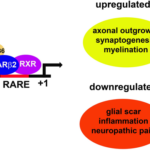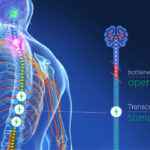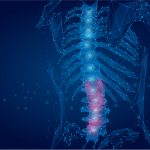New research from the Institute of Psychiatry, Psychology & Neuroscience (IoPPN) at King’s College London has demonstrated the safety and tolerability of a new drug treatment designed as a therapeutic intervention for spinal cord injury (SCI). The research, published in…
Tag: clinical trial
SpinalCure releases latest impact report
Funding groundbreaking research to cure spinal cord injury A cure is in reach. It’s not a matter of if, but when. This is our mantra, and it really is closer than ever. Despite the challenges of the COVID pandemic, 2021 was…
New panel of experts aims to ‘mend the gap’ in spinal cord injuries
A new international team of 32 scientists has joined forces to identify areas of promising research in spinal cord injuries. Their first project aims to mend the tiny gaps that form after a traumatic injury, writes Tom Elphick, SpinalCure Community…
What is neurostimulation and what is it used for in people with SCI?
What are the similarities and differences of TENS, FES, and spinal cord stimulation? Neurostimulation is changing the face of neurological rehabilitation as we know it. It has a wide variety of uses including pain relief, treatment for psychiatric diseases and…
SpinalCure scientist series: Prof. Simon Gandevia on how he became interested in science and spinal cord injuries
Professor Simon Gandevia is one of the world’s leading neuroscientists, and is the Deputy Director of NeuRA and Senior Principal Research Fellow, NHMRC. He is also the Study Lead for the eWALK trial, funded and initiated by SpinalCure, along with…
‘Dancing molecules’ repair spinal cord injuries in mice
For decades, spinal cord injuries have remained one of the hardest injuries for scientists to treat because nerves in our spinal cord have a limited ability to repair. But a new study from Northwestern University in the United States has…
Alex Richter’s story
Alex loves mountain bikes—he was mountain-biking when he injured himself two years ago at age 16. He was in year 11 at school. As Alex waited for help, a friend called his mum Karina and held the phone to his…
David Prast Achievement Award launched
In partnership with Spinal Cord Injuries Australia (SCIA), we are excited to announce the launch of The David Prast Achievement Award. In memory of the very remarkable Mr David Prast, the Award celebrates his dedication and pursuit of excellence and…
Lack of bladder control is one of the unseen effects of spinal cord injuries. Can neurostimulation help?
One of the unseen side effects of spinal cord injuries is a loss of bladder control. Many people with spinal cord injuries (SCI) have to take drugs to control their bladders, but unfortunately they come with lots of side effects,…
SpinalCure announces continued support for research which could help find a cure for spinal cord injury by helping us better predict outcomes
SpinalCure is pleased to announce our continued support over three years for research that is examining the inflammatory response and predicting outcomes of new spinal cord injuries — essential for progress towards a cure. The research is led by Associate…










